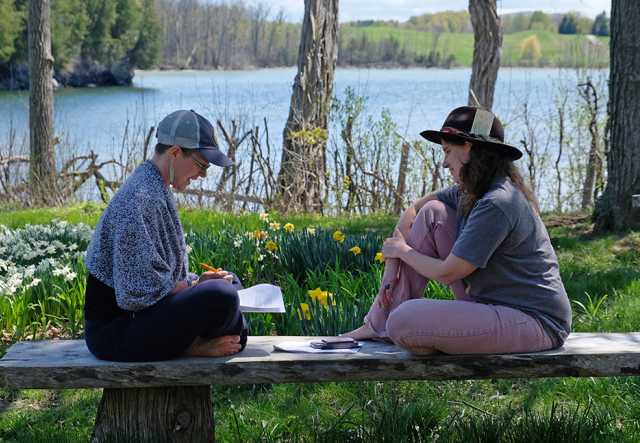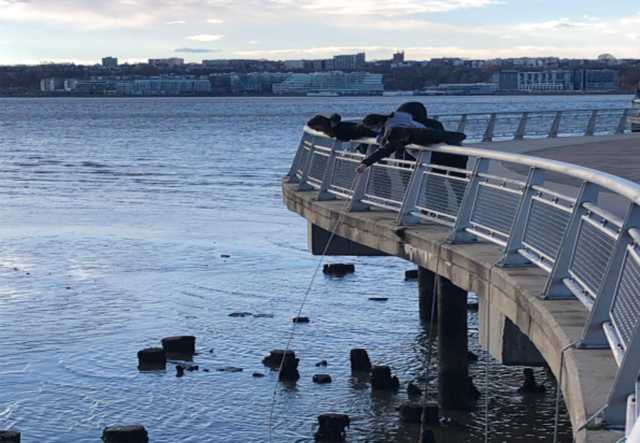This is why Shelburne Farms is so important to the world today and its future. This is why it is so important to me. Thank you for letting me in behind the scenes to see the wonders that Educators from near and far are going to translate into positive change by developing learners into leaders for a more sustainable and equitable living planet Earth.
A Summer On, Not Off
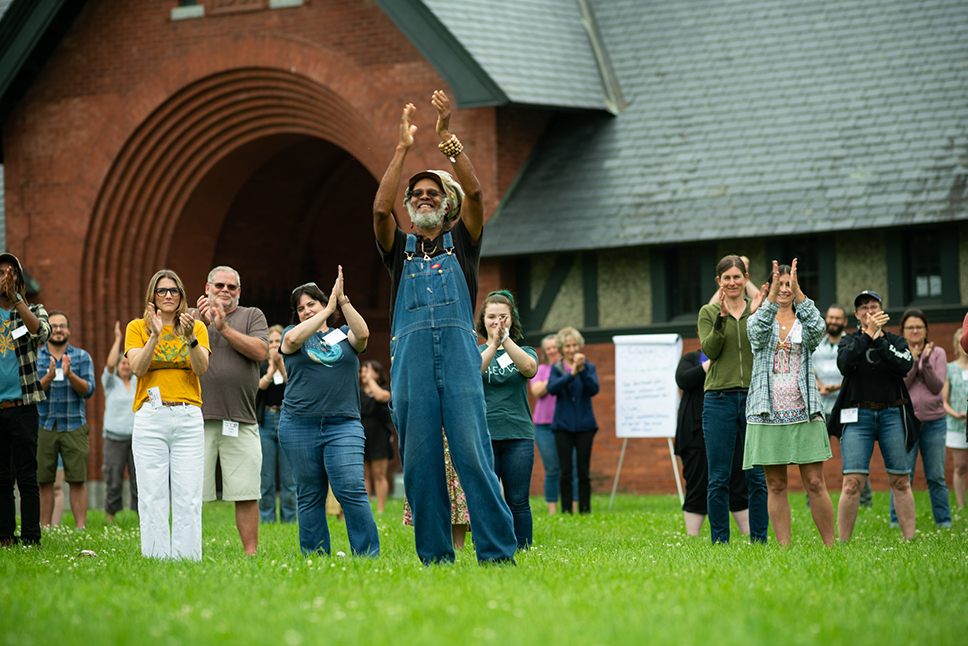
Summer is a busy time on any farm, but for Shelburne Farms, it’s an especially buzzing season. June through August, the Shelburne Farms Institute for Sustainable Schools hosts hundreds of educators from around the world for workshops and retreats, immersing them in the ideas of Education for Sustainability (EFS) and offering inspiration and ideas they can bring back to their classrooms and communities.
Read on for a chronology of highlights from this summer’s programs and to hear from a few of the extraordinary educators and facilitators who joined us.
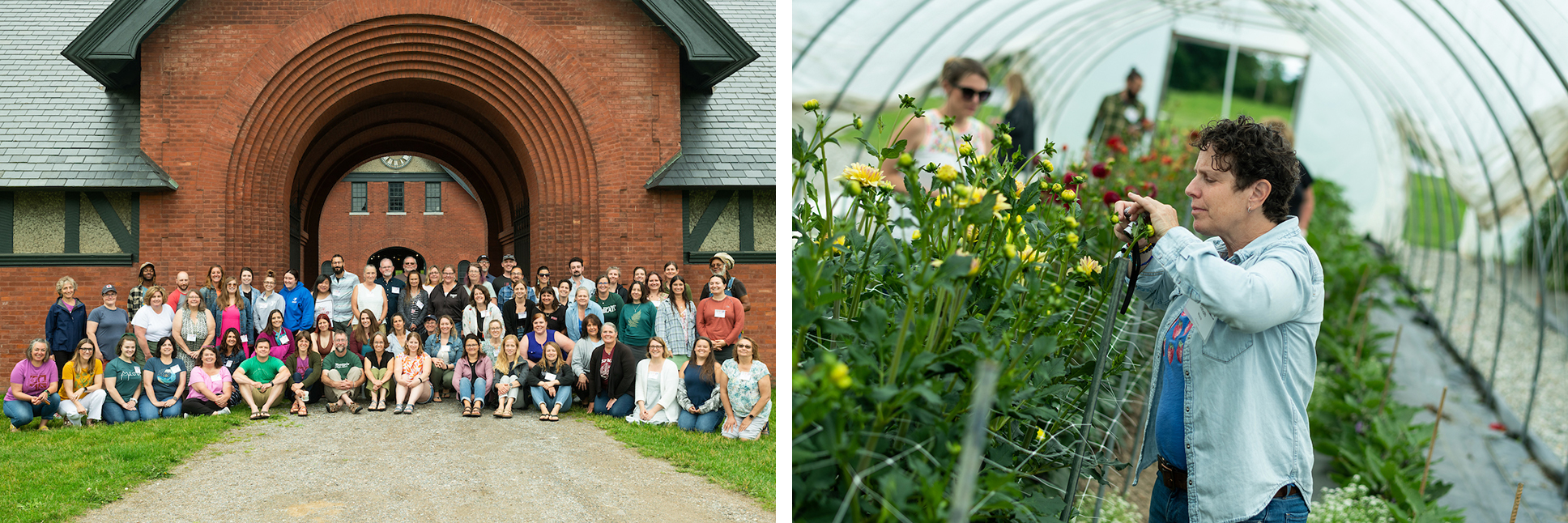
Thursday, June 29, farm to school(s). Nine regional school and district teams were selected for the 2023–24 Northeast Farm to School Institute, along with five state teams—Kansas, Louisiana, Pennsylvania, Minnesota, and Rhode Island—who will adapt the model in their own regions to strengthen food systems education and local purchasing across the country.
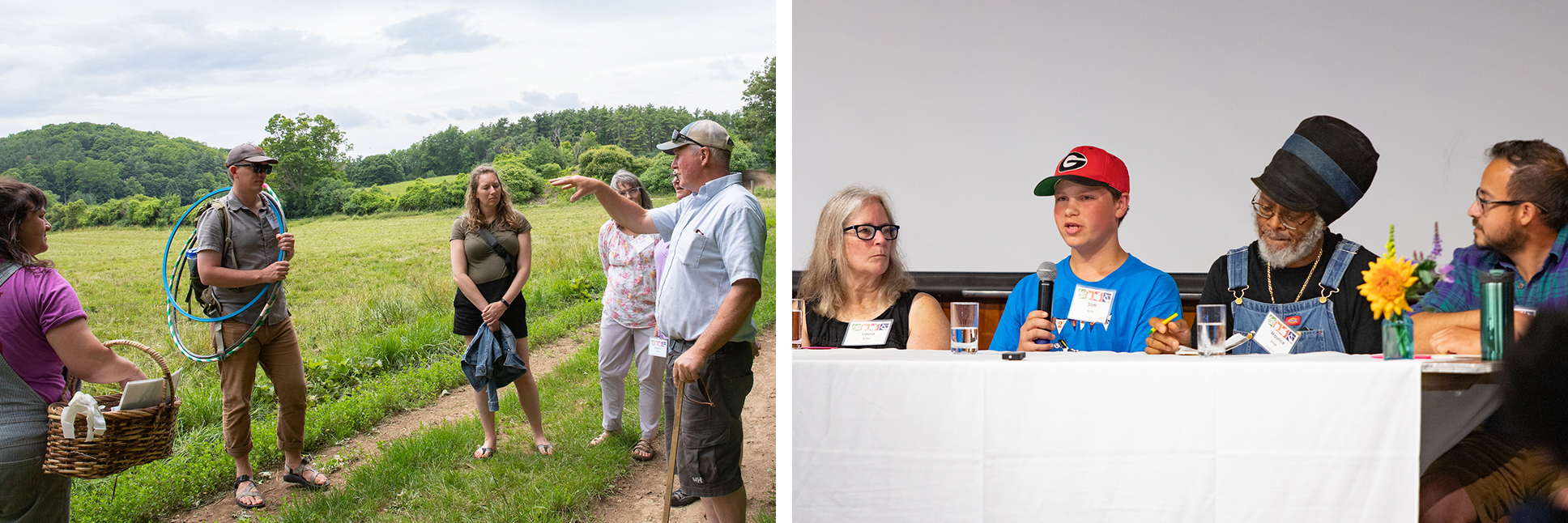
We kicked off the year-long program with a three-day retreat. Teams built relationships, skills, and collaborative action plans to put into place back at their schools and early childhood programs. Participants also ventured onto the farm for hands-on “learning journeys” like a pasture walk with Shelburne Farms dairy herd manager Sam Dixon, and heard from panels of farm to school advocates.
July 12, the conditions for sustainability. An important goal of Cultivating Joy and Wonder, explains facilitator Jed Norris, “is getting out into the community and meeting community partners.” The aim is to inspire early childhood educators to form their own relationships between their classroom and their community. To get participants thinking, the group spent a day meeting our community partners, including Chittenden Solid Waste District’s Rhonda Mace (also known as Recycle Rhonda). Says Jed: “Here we’re talking about what’s behind the ‘blue bin’ and what it takes to make recycling happen. It takes a whole system to create the conditions for sustainability.”
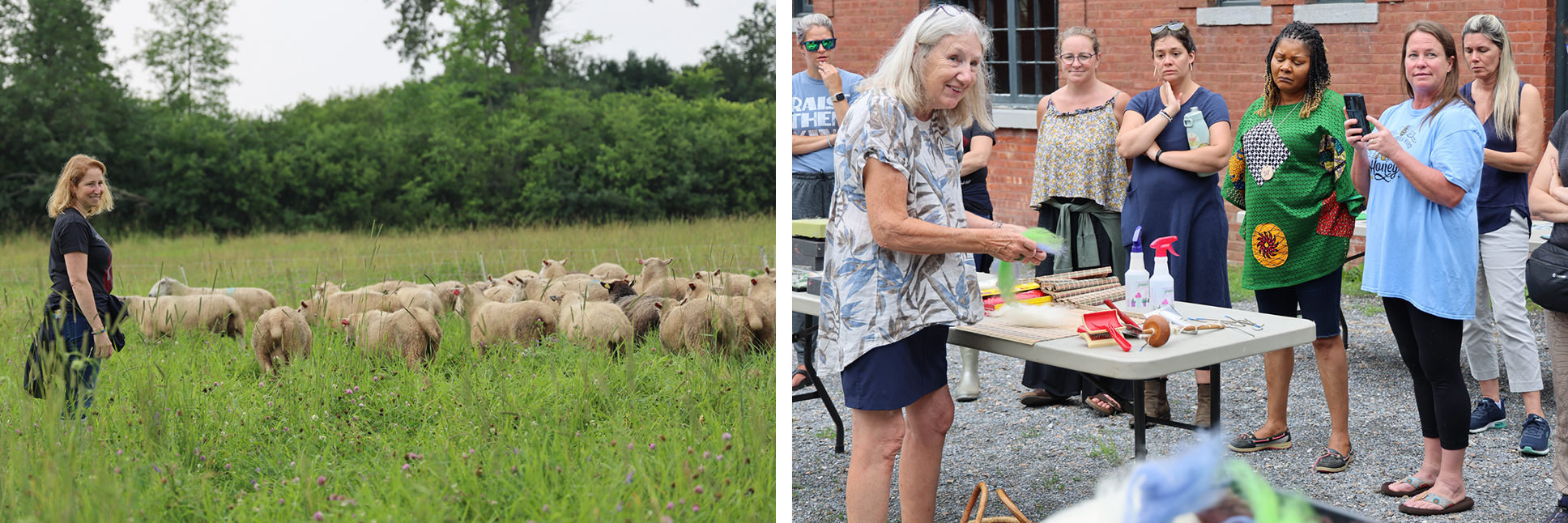
July 13, from sheep to sweater. Even early learners can (and should!) learn about sources of their food and fibers. In Cultivating Joy and Wonder, early educators drew inspiration for this work with a trip to the sheep pasture followed by a hands-on felting demonstration with Shelburne Farms educator Linda Wellings.
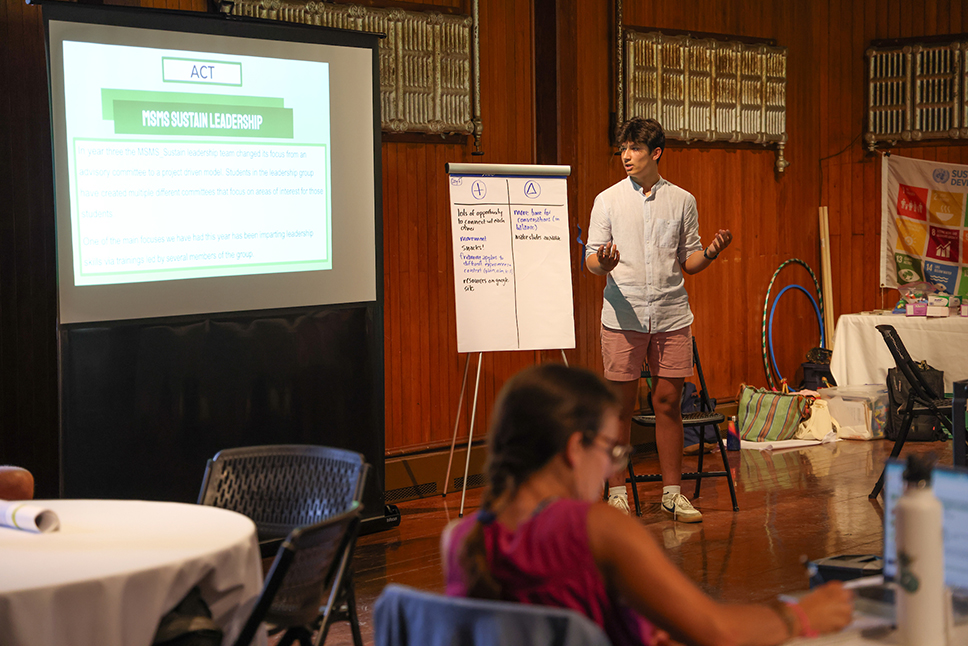
July 18, community as curriculum. Foundations in EFS welcomed teacher Don Taylor and his student Asa (pictured) from Montpelier’s Main Street Middle School. Their presentation came just days after devastating floods hit the region; Don, who teaches a sustainability-focused course, said, “the curriculum for next year is writing itself. Day One, we’re going to ask, how are we going to help our community?” The course, MSMS_Sustain, is in its third year, and student Asa is a leader in the program. “It’s made me excited to come to school every day. Now there’s a connection between what we do in school and my life,” shared Asa.
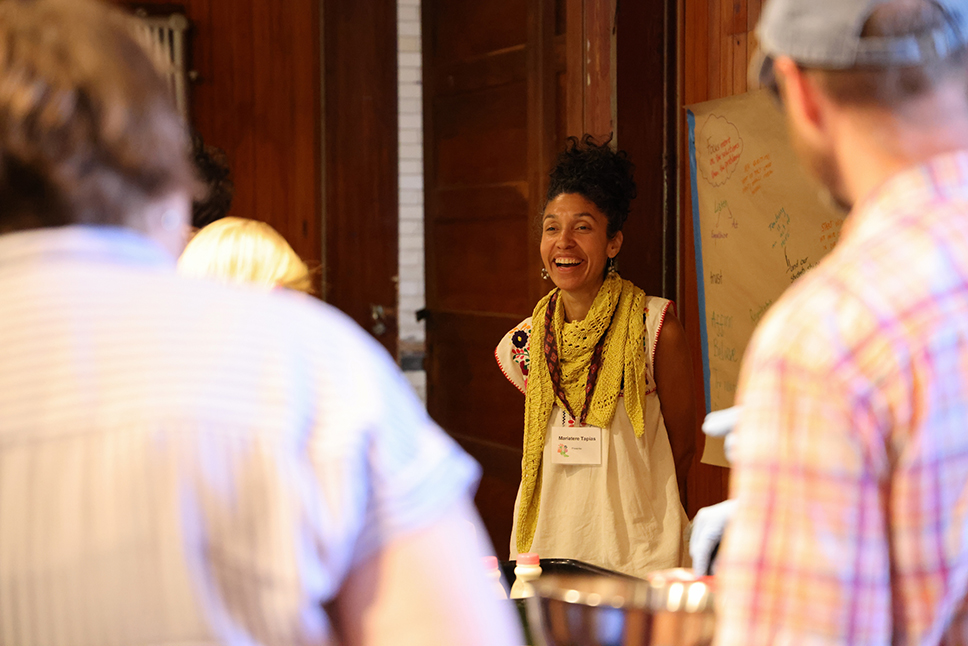
July 18, sowing seeds. Making food with students, explains Brooklyn College instructor Mariatere Tapias, can be a way to form connections between teachers and learners. Foundations in EFS participants joined Mariatere to cook arepas, corn cakes stuffed with cheese, based on her family’s recipe. “Cooking is a way to deepen community and leave you with the idea of joy,” said Mariatere.
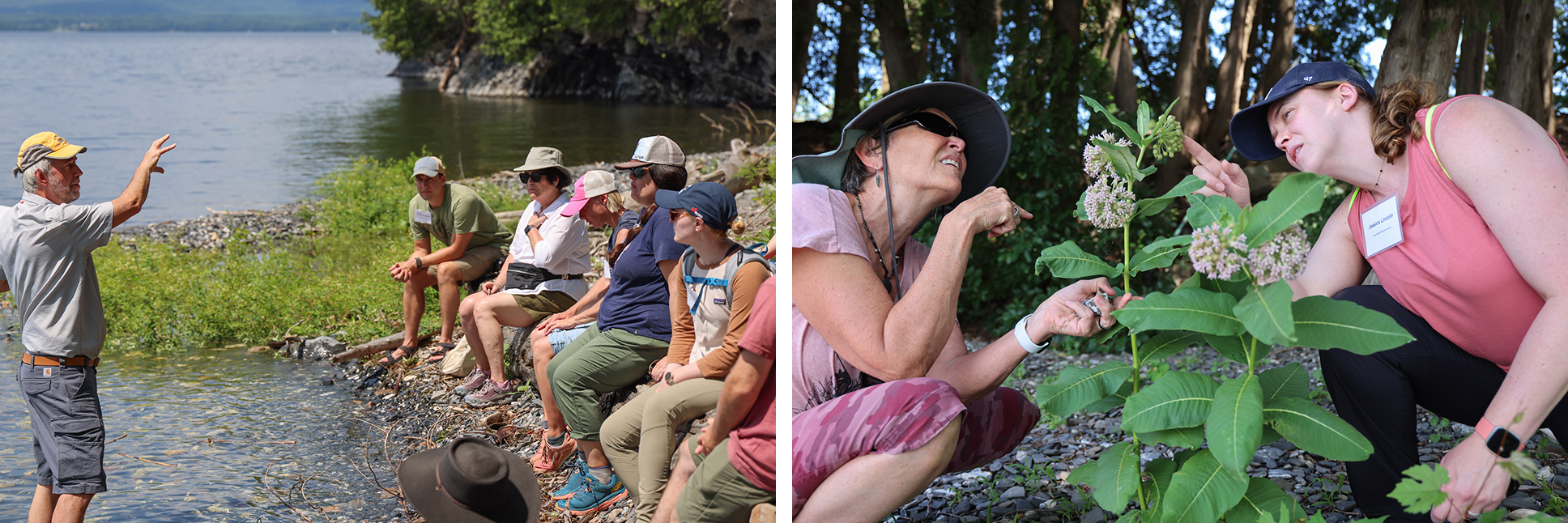
July 19, on the shores of Champlain. “For me, ecology is all about sustainability and systems, and how those systems work together,” explained ecologist and UVM lecturer Walter Poleman, left. Educators in Foundations in EFS gathered on the rocky shoreline to examine the pieces, patterns, and processes at work along Lake Champlain (Bitawbogok) and tune into the geological stories the Land can tell us.
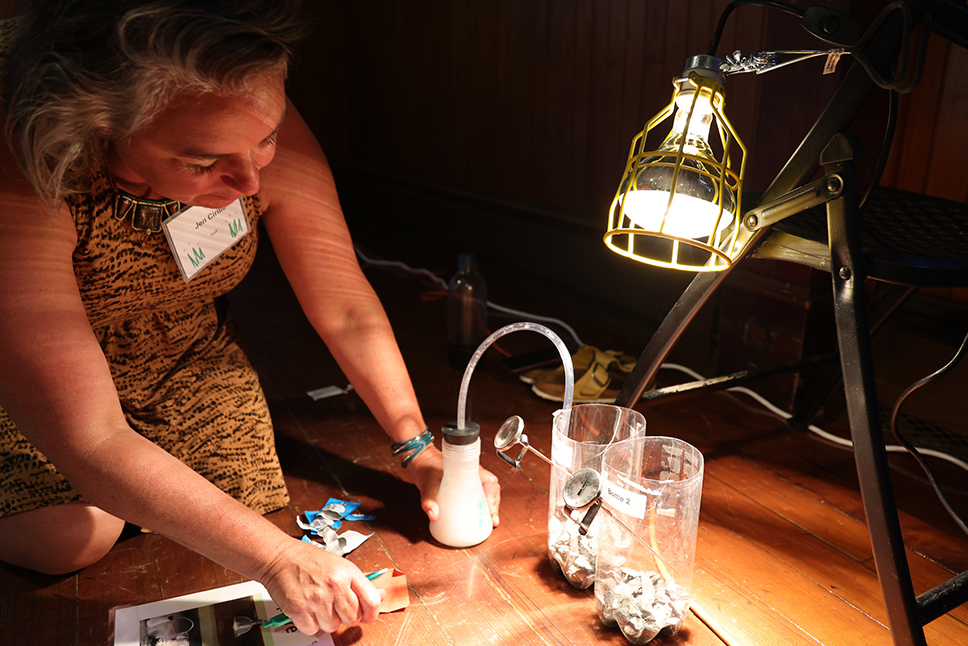
July 20, taking action in a warming world. “When we’re studying climate change, it’s not enough to learn about what’s happening and why. Our kids need to learn what they can do about it,” urged Vermont Energy Education Program’s executive director Sophia Donforth. With Sophia as a guest facilitator, Foundations in EFS participants learned hands-on ways of teaching their students the dynamics at play in climate change, and the impact mitigation and adaptation can have. In this illustrative activity, educators tracked what effect adding carbon dioxide (in the form of Alka Seltzer) and water vapor has on air temperature.
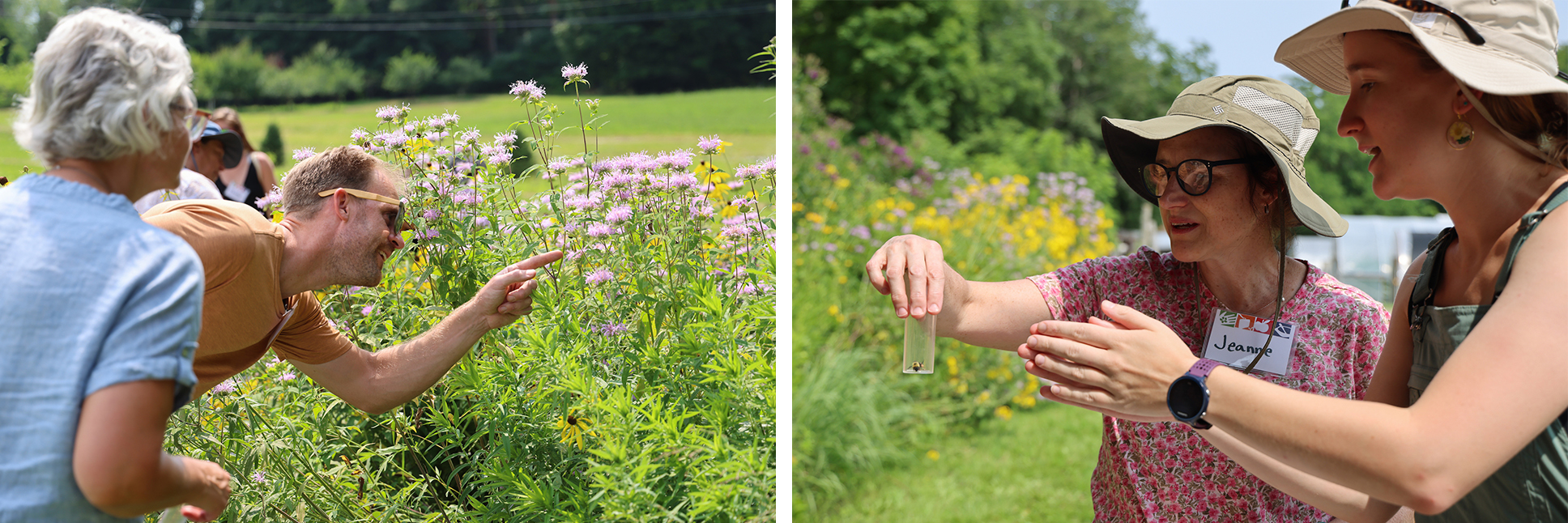
July 25, pollinator safari. The ideas of wonder and action are at the heart of the Immersion in EFS program. Here, participants explored the Market Garden with UVM PhD student and pollinator researcher Leslie Spencer (far right) as their “safari” guide, gathering tips and tricks for introducing their students to pollinators and bringing pollinator-friendly practices to their campuses. Said educator Heather, “We’ve started a small pollinator garden at my school. But now I’m thinking about, how do we spark that sense of wonder for students? Today, I had that sense of wonder myself.”

July 26, learning locally, transforming globally. Quality education. Zero hunger. Clean water. Climate action. How would you prioritize these issues to advance the global good? Educators in Immersion in EFS were challenged to work together and prioritize the UN’s 17 Sustainable Development Goals based on what they think contributes to a safe and healthy life for all. The activity is one we use with learners to engage them in thinking about their community and is featured in the forthcoming Learning Locally, Transforming Globally guide.
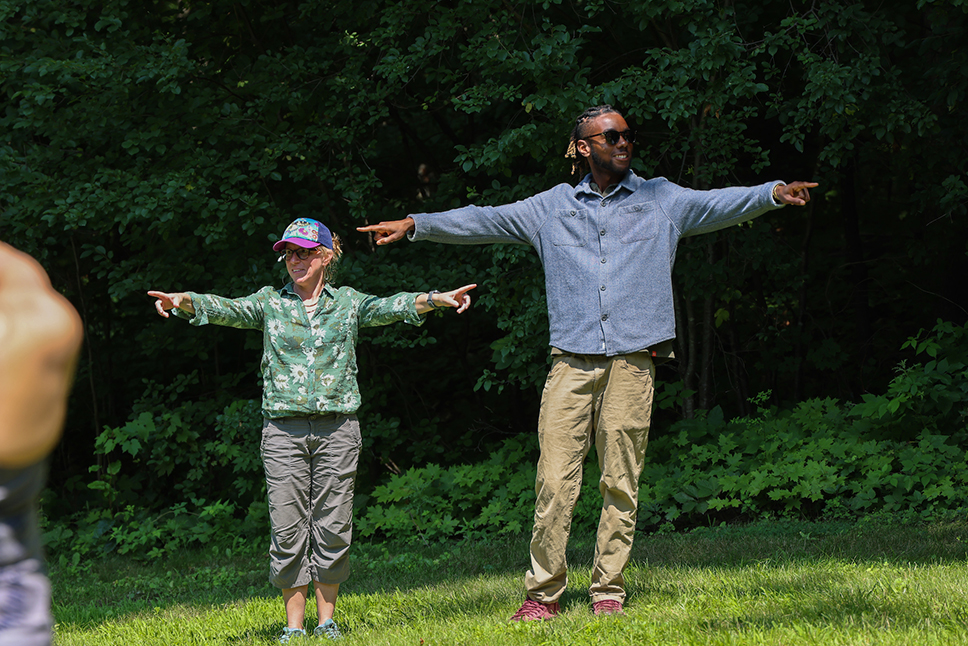
August 2, system dynamics. Systems change is a thread that runs through all of our professional learning: Every program challenges participants to examine their roles in systems like agriculture and education, and to explore ways of transforming those systems. Here, in the opening retreat of the 2023–24 EFS Leadership Academy, educators circle up to play out systems dynamics in a mirroring game, pictured here. Over the next year, these leaders will develop projects to advance positive change.

